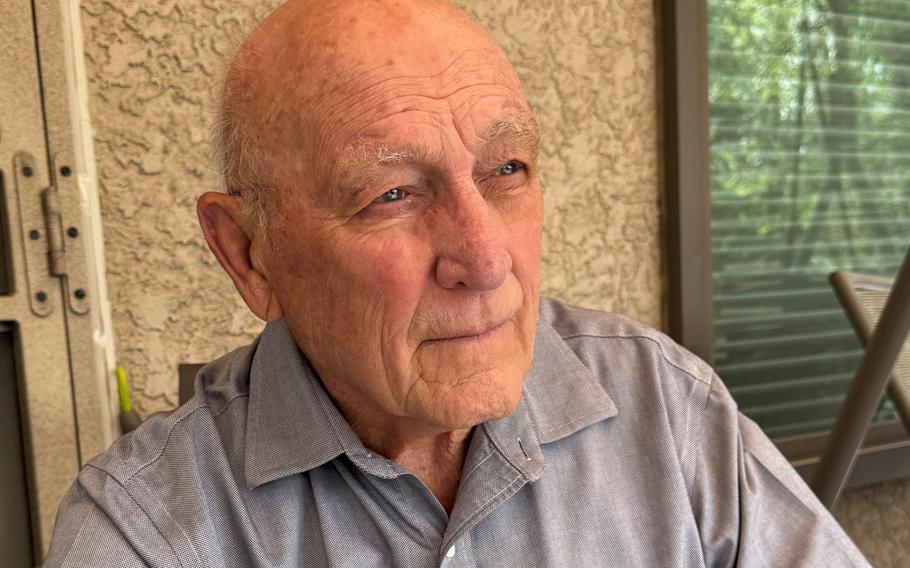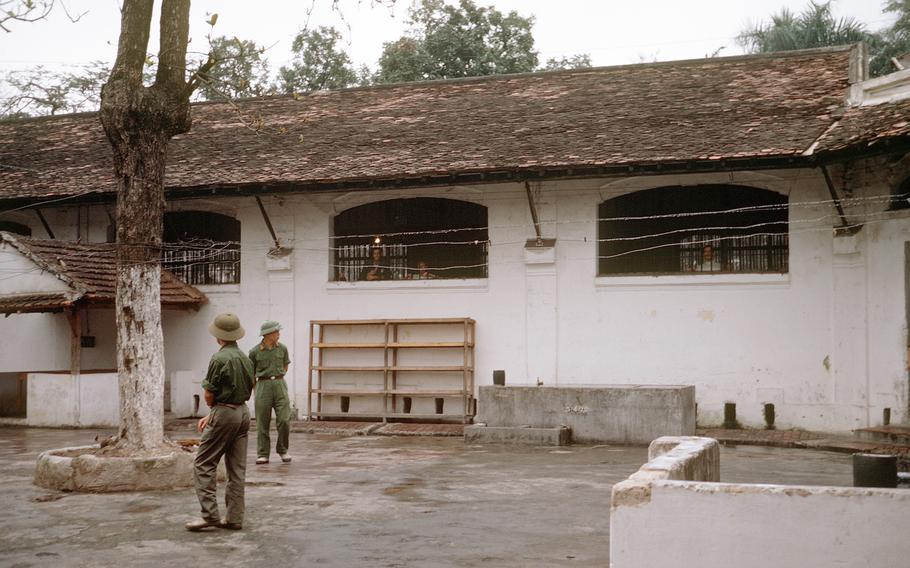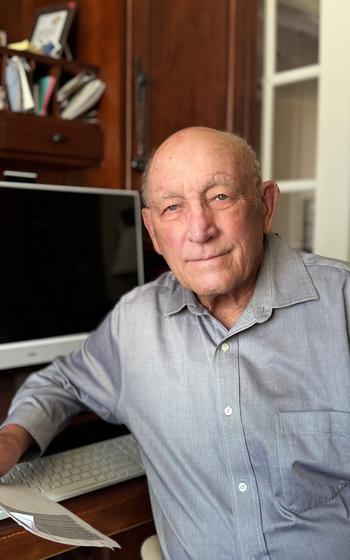
Retired Navy Capt. Mike McGrath, a Vietnam veteran who spent six years in captivity, seen here at his Colorado home on May 14, 2025. McGrath researched a spike in the number of veterans getting prisoner of war benefits from the Department of Veterans Affairs. He contends that the rise is a result of VA acceptance of claims from impostors, but the agency says its accounting system may create multiple tallies for a person who served during more than one wartime period. (Mike McGrath)
When the number of former prisoners of war receiving benefits from the Department of Veterans Affairs nearly doubled without explanation, an American survivor of the “Hanoi Hilton” wanted answers.
Mike McGrath, a Vietnam veteran who spent six years in captivity and now investigates false military claims, said his research points to impostors receiving Veterans Administration POW benefits.
The VA offers a different explanation. Officials say the surge in POW figures stems from a confusing accounting system that may count the same veteran more than once across multiple conflicts.
The department also acknowledged it does not track where a veteran was held captive.
McGrath and a network of fellow POWs and researchers say they’ve identified cases of veterans falsely claiming POW status to obtain benefits and prestige.
“It hurts and it’s insulting because these claimants never spent a day in a prison in their life,” McGrath said. “They’ve never been tortured.”
The VA said it is not aware of any fraudulent claims, but officials did not address whether the agency has audited its POW rolls.
“VA conducts a thorough review of all POW claims to ensure service records and other dates align with their dates of service before delivering any benefits,” VA press secretary Peter Kasperowicz said in a statement.
McGrath said he first noticed discrepancies in 2008 when VA data on living POWs began to diverge from Defense Department records.
By July 2024, the VA in a report to Congress tallied 1,191 living POWs from Southeast Asia. In 2008, the VA listed 661, which was in line with a Defense Department fact sheet produced in 2017. McGrath believes just 326 remain alive today.

Exterior view of the North Vietnamese Hoa Lo prisoner of war camp, known as the “Hanoi Hilton,” in 1973. Mike McGrath, a retired naval officer who was imprisoned there, says the Department of Veterans Affairs tally of former POWs is inflated. (Wikimedia Commons)
More recent conflicts show even greater inconsistencies: McGrath’s research indicates 31 POWs survived the Gulf War and post-9/11 conflicts, yet the VA lists 1,142. Stars and Stripes was able to verify each of the 31 names on McGrath’s list following a review of past news articles and press releases. No additional names were found during the review.
A December letter from Guy Kiyokawa, VA assistant secretary for the Office of Enterprise Integration, to former Rep. Doug Lamborn acknowledged that 899 Vietnam-era POWs listed by the VA were not on DOD rosters.
The VA validates veteran claims at the time of enrollment and exclusion from the DOD tally does not warrant a claim reversal, Kiyokawa said.
The VA could not provide precise counts of living POWs receiving benefits by conflict.
VA chief data officer Lisa Rosenmerkel told Stars and Stripes in March that the agency only tracks POWs by congressionally defined periods of service, not by war. This can lead to double-counting if a veteran’s service spans multiple periods.
If you served from 1956 to 1970, “we would count you in Korea and Vietnam,” Rosenmerkel said. “I know it’s super confusing, but unfortunately this is the most kind of granularity we can show.”
She also confirmed that the VA does not track the location of captivity.
Rosenmerkel said she didn’t know why earlier tallies aligned with DOD data while current numbers do not.
McGrath, 85, is a former Navy fighter pilot shot down over North Vietnam in 1967. He spent nearly six years in captivity.
McGrath was tortured at the infamous Hoa Lo prison, which is better-known as the “Hanoi Hilton.”
“All the POWs were broken past name, rank and serial number,” he said. “They either broke you or they killed you.”
He has spent decades researching POW claims with the nonprofit NAM-POWs, where he serves as historian. In the 1990s, he teamed up with stolen valor investigator Mary Schantag, chair of the P.O.W. Network.
The pair researched press reports and tips about people who were claiming POW status but were not on any Defense Department lists.
They built a private database of verified POWs starting with the Vietnam War and began reporting suspicious cases to the VA inspector general and news outlets.

Retired Navy Capt. Mike McGrath, a Vietnam veteran who spent time as a prisoner of war in the infamous "Hanoi Hilton," has campaigned against stolen valor for decades. He disputes the Department of Veterans Affairs' explanation for a sharp increase in the number of former service members receiving POW benefits from the VA. (Mike McGrath)
Schantag said the VA has denied Freedom of Information Act requests for supporting documentation on some cases. She provided Stars and Stripes with VA records showing two Vietnam-era benefit recipients who do not appear on official POW lists.
“They would rather get several wrong than miss a real guy,” Schantag said.
McGrath frequently lobbied lawmakers to get around what he saw as VA stonewalling.
The VA defines a POW as a service member “forcibly detained or interned” by an enemy or hostile force. During wartime, DOD makes determinations, but during peacetime, the VA may rule on its own, including on cases supported by “buddy statements” or supplementary documentation.
POWs are eligible for a range of benefits, including pensions, medical care, education assistance, home loans and burial services.
Rosenmerkel said the VA’s review process is thorough.
“There’s no self-attestation,” she said. “We are running it down if they are saying that they were a former prisoner of war. We have a really detailed process document.”
She declined to release redacted data on claims — such as is done with toxic exposure cases — citing concerns about inadvertently revealing identities.
Meanwhile, McGrath’s work has support from other former POWs and military officials.
“I’d like to see the record corrected and the people who do this stuff exposed, and I think they should pay the money back,” said Hal Kushner, an Army flight surgeon and POW for more than five years in Vietnam.
Roger Shields, former deputy assistant secretary of defense for POW/MIA affairs at the end of the Vietnam War, agreed the VA’s numbers don’t add up.
“We were very, very careful to keep these lists of people who were missing and who were prisoners,” Shields said. “Whatever the VA thinks they have, they need to say what it is and why they think that they’re prisoners of war, and they need to address the issue.”